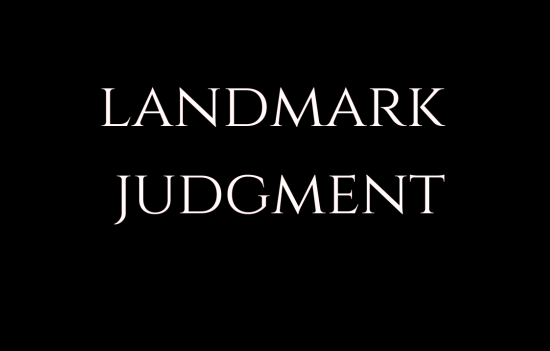Date Of Judgment: 23/01/1967
Equivalent Citations: 1967 AIR 1170, 1967 SCR (2) 454, AIR 1967 SUPREME COURT 1170, 1967 (1) SCR 433, 1967 JABLJ 493, 1967 MADLJ(CRI) 695, 1968 (1) SCJ 173, 1967 2 SCJ 278, 1967 (1) SCWR 219, 1967 SCD 805, 1967 (1) SCWR 1052, 1967 SCD 636, 1968 MADLJ(CRI) 24, 1967 2 SCJ 448, 1967 MAH LJ 541, 1967 MPLJ 433
Case No: Civil Appeal No. 1066 of 1965.
Case Type: Civil Appellate Jurisdiction
Petitioner: State Of Madhya Pradesh & anr
Respondent: Thakur Bharat Singh
Bench:
- Hon’ble justice J.C Shah
- Hon’ble justice K Subba Rao
- Hon’ble justice J.M. Shelat
- Hon’ble justice Vishishtha Bhargava,
- Hon’ble justice G.K. Mitter
Court: Supreme Court of India
Statues Referred:
- Madhya Pradesh Public Security Act 1959
- Constitution of India
Facts:
- An order was passed by Madhya Pradesh state government by exercising its powers under section 3 of Madhya Pradesh Public Security Act 1959 and directed the respondent Thakur Bharat Singh that –
- The respondent shall not be permitted to reside in any place in Raipur District.
- The respondent shall reside within the boundaries of Jhabua town, District Jhabua, M.P and should move there as soon as the order was passed.
- The respondent shall daily present himself before Jhabua police station officer by 8:AM and 8:00 PM and will also inform about his movements.
The Madhya Pradesh Security Act 1959 gave powers to district magistrate and state to order any person to abandon any area or place and to reside in any place as specified by the government in order preserve state security and public order.
- As a result of the impugned order, a petition was moved to high Court of Madhya Pradesh under Article 226 & 227 of constitution challenging the order passed by state under Madhya Pradesh security act 1959. =’
- The High Court declared certain clauses of the order as valid and others as invalid.
- Then an appeal to the Supreme Court was made.
Issues Involved:
- Whether the provisions of the Madhya Pradesh security Act violate the fundamental rights given under article 19 (1) (d) & (e) of the constitution.
- Whether the petitioner could move to high court under article 226 & 227 during emergency.
Contentions of the Petitioner:
The counsel for petition contended that-
- Emergency declared by the president under Article 252 in 1962 was not suspended and the order by the state was given during the national emergency.
- Hence Article 19 of the constitution was suspended by Article 358. Therefore, the petitioner under Article 226 cannot appeal in high Court that his fundamental right as given in Article 19 (1) (d) & (e) of the constitution is being violated by the order passed.
Contentions of the Respondent:
The counsel of respondent contended that –
- In the petition moved by respondent in the High Court of Madhya Pradesh under Article 226 & 227 the respondent contended that provisions of the act are extremely egregious and the order passed by states under the act infringes fundamental rights under article 19 (1) (d) and (e) of the constitution.
- The order is illegal, discriminatory and is against the principles of natural justice.
Judgment
The Supreme Court held that Section 3(1)(b) of the Act, which authorized the imposition of restrictions on a person’s freedom of movement, was void. The Court found that it did not provide an opportunity for the person concerned to be heard before selecting the place of residence, and it authorized unreasonable restrictions.
The Court clarified that Article 358, which suspends provisions of Article 19 during an emergency, only has prospective effects. It does not validate legislative provisions that were invalid before the emergency proclamation. As a result, the order passed under Section 3(1)(b) was not supported by valid legislation and could not be validated by Article 358
Ratio decidendi
The Supreme Court ruled that the state’s order under section 3(1)(b) of the Madhya Pradesh Public Security Act was void Since the order was not supported by lawful legislation, it was not possible to invoke Article 358 of the Constitution to claim immunity from Court proceedings for actions taken against the respondent following an emergency declaration under Article 352.
The Court emphasized the importance of the rule of law, including judicial review of arbitrary executive actions, and the need for valid legislative authority to support executive actions.
Obiter dicta
The State’s reliance on the observations did not bolster the argument that the State or its officials could violate citizens’ rights in the exercise of their executive authority simply because the State Legislature possesses the authority to enact laws pertaining to the subject matter of the executive order.
Conclusion
In conclusion, the Supreme Court, in the case of State Of Madhya Pradesh And Anr. vs. Thakur Bharat Singh, delivered a significant judgment on January 23, 1967. The case revolved around the constitutionality of certain provisions of the Madhya Pradesh Public Security Act, 1959, and the legal implications of an order issued under Section 3(1)(b) of the Act.
The Supreme Court dismissed the appeal and affirmed the High Court’s decision regarding the invalidity of certain clauses of the order issued under the Madhya Pradesh Public Security Act. This landmark judgment reinforced the principles of constitutional validity, rule of law, and the limited scope of emergency provisions in safeguarding individual rights.
Drafted By: Palak Mehta
Published on: February 8, 2024 at 13:33 IST

